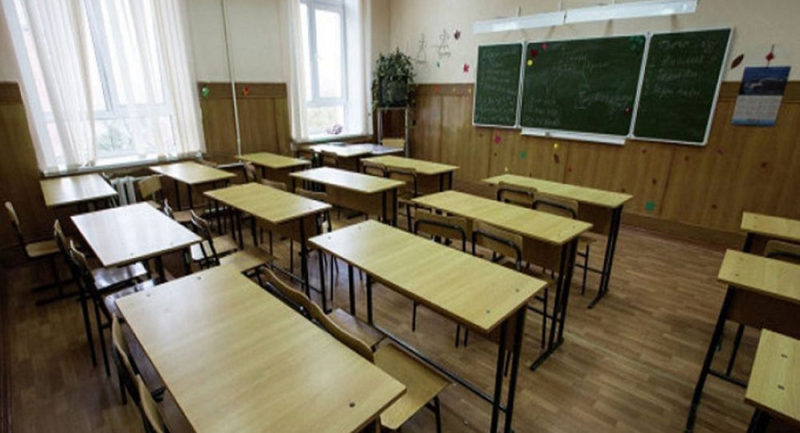The Court recognized illegal the headmaster’s decisions.
On November 4, 2019, Tavush region Haghartsin community school technology teacher L.M., to her amazement, read the following document attached on the wall of the school, “A notice of reprimand in regard to technology teacher L.M. for leaving the workplace on October 25, 2019, during her working hours without permission and by violation of Haghartsin school internal disciplinary rules”.
In 2019, with the support of HCA Vanadzor legal advisor Sofya Petrosyan, L.M. filed a lawsuit against the school headmaster, claiming to recognize invalid the headmaster’s order on disciplinary penalty.
On March 13, 2020, Tavush region General Jurisdiction Court, presided by Judge A. Kurekhyan, upheld L.M.’s civil suit.
In the answer to the claim, Haghartsin school headmaster mentioned that L.M. bypassed her and applied to deputy headmaster asking for permission to leave the workplace earlier and ignoring the reasoning that the latter did not have the relevant competency. L.M. left, reasoning that the headmaster was not there, while in reality, the latter, together with computer operator, was sending documents to the provincial administration. L.M. could have asked for permission by phone, which she did not do, either. The deputy headmaster told L.M. on the phone that it was necessary to present an explanatory note on her action, which she did not do, either. Next day, in the presence of a number of teachers, L.M. sticked a laughing emoji on the legal act, thus expressing her disrespect and content towards the document.
Guided by law requirements and school’s internal disciplinary rules, the headmaster imposed a disciplinary penalty in the form of a reprimand, the order of which was placed in a visible place in the teachers’ room.
The headmaster’s answer was immediately followed by L.M.’s objection, by which she informed the Court that before imposing the disciplinary penalty, the headmaster had not claimed a written explanation on the violation, therefore, the disciplinary penalty was groundless. She actually learnt about the imposed penalty from the announcement wall, which means that she was deprived of her right to present an explanation.
During the trial, L.M. insisted on her substantiations. Since the headmaster and the deputy in educational matters were not in school at that moment, L.M. got permission from the deputy headmaster to leave her workplace earlier and go to Dilijan in order to take care of her sick parent. Taking into account that in the absence of the headmaster, deputies replace the former, L.M. asked for permission to be absent and got the permission from the other deputy headmaster, therefore, the imposition of disciplinary penalty is groundless.
Taking all this into account, she asked the Court to recognize invalid the headmaster’s order on imposing a disciplinary penalty.
The headmaster objected to the lawsuit, mentioning that L.M. had violated the school’s internal disciplinary rules and had not written an explanatory note.
It was noteworthy for the Court that the deputy headmaster mentioned in her testimony that she had phoned L.M. regarding the necessity of an explanatory note, but had not mentioned any deadline for that action.
Having heard the parties and assessed the proofs of the case, the Court made the conclusion that violations of labor legislation had taken place.
Thus, according to Article 220 of the RA Labor Code, lack of performance of employment duties or improper performance of such duties due to the fault of the employee shall be deemed as violation of workplace discipline, according to Article 221, disciplinary liability may be applied only to the employee having violated work discipline, and according Article 223 (1) point 2, the following disciplinary penalties may be applied for violation of workplace discipline /…/ severe reprimand. Moreover, Article 226 establishes, “Prior to application of a disciplinary penalty the employer shall demand from the employee a written explanation on the violation. Where within the reasonable time limit established by the employer the employee fails to submit an explanation with no valid reason, the disciplinary penalty may be applied without an explanation”. It is clearly established in law that the employer has an obligation to give the employee reasonable time for the explanation, which is, by the way, up to the employer, that is, the employer decides how much time is required for the employee to present the explanation.
This guarantees the possibility of the implementation of the employee’s right in a set time period, and at the same time this also presupposes time limitation for the employee. This means that the employee has to be sure that before the expiration of the deadline, no disciplinary penalty will be applied to him/her and should thus realize that in case of not presenting an explanation in the set time limit, it can be applied without explanation.
The Court recorded that in this case, the above-mentioned points of law were not fulfilled. There is no specific time limit mentioned in the headmaster’s note on demanding an explanatory note. In such conditions, the Court found grounded L.M.’s argument that not having time limits for presenting an explanation in a written form, she was deprived of a possibility to present such an explanation, and when she wanted to present it, the disciplinary penalty had already been applied in the form of a severe reprimand.
Based on this, the Court concluded that the disciplinary penalty imposed on L.M. was made by violation of law, as the employer did not provide her with reasonable timeframe to present a written explanation, thus violating Article 226 of the RA Labor Code, and ruled a judgment to recognize invalid Haghartsin school headmaster’s order on imposing a disciplinary penalty on L.M.
L.M. also litigated Haghartsin school headmaster’s order, dated November 4, 2019, to impose a disciplinary penalty on L.M. for sticking a laughing emoji on the document of the order. Tavush region General Jurisdiction Court, presided by A. Kureghyan, upheld this claim in the judgement ruled on March 13, 2020.
It should also be added that the incident that happened to L.M. did not come to an end at this. She informed HCA Vanadzor that on November 14, 2019, Police Chief of Tavush region, together with other policemen, visited Haghartsin school to meet “and conduct educational work” with teachers who dared to speak up about cases of labor rights violations to the competent authorities.
In particular, the policemen touched upon the criminal cases initiated on the fact of abuses in school and spoke words of contempt to all the teachers who tried to exercise their labor rights and spoke up about them. During that meeting, the headmaster did not evade L.M.’s action of sticking a laughing emoji on the penalty document and speaking about it and in response to this, Tavush region Police Chief said, “Give this up, give this up, it’s already two years that this case has been boiling. Give this up, otherwise, it’s gonna end up very sad for some people”. L.M. felt a threat, supposing that the purpose of the region Police Chief was to protect the headmaster and to rebuke her. In 2019, HCA Vanadzor applied to the RA temporary acting Police Chief asking to conduct service investigation and hold liable the perpetrators. Internal Security Department of the Police responded that having examined the conditions of the incident, they found out that the policemen had not made any violations of disciplinary nature, therefore it was not expedient to initiate and conduct a service investigation.
Not finding appropriate the Police actions conducted into this case, on March 9, 2020, HCA Vanadzor sent another note to the RA temporary Police Chief Arman Sargsyan, reaffirming the position that it was necessary to give a legal assessment to the officials’ actions of persecuting the teachers who had reported a crime, to initiate a service investigation and hold the perpetrators liable. HCA Vanadzor also sent a note to inform A.Sargsyan that policemen do not have the power to regulate interpersonal relationship inside the school. According to RA Laws “On General Education” and “State Non-Commercial Organizations”, the authorised public administration body of schools are provincial administrations, therefore, they have the power to ensure the normal proper functioning of schools, while, it is clear from the information provided by L.M. that Tavush region Police Chief visited the school and reserved himself the school authorised body’s powers and exhorted the teachers to put an end to the tense atmosphere at school.
Based on the above-mentioned, HCA Vanadzor expects from the RA temporary Police Chief to investigate into the conditions mentioned in the letter, assign a service investigation and hold the perpetrators liable.
On March 17, 2020, Police Internal Security Department sent a similar response to the letter addressed by HCA Vanadzor to the RA temporary Police Chief on March 17, 2020, and mentioned that an examination had already been conducted and no data had been obtained in regard to “educational works” conducted by policemen. Tavush region Police Chief had made a visit to school to talk to high grade pupils about prevention of trafficking and other crimes, as well as to meet the teachers’ staff. While talking to the teachers, policemen did not make any violation of ethical standards of police or any disciplinary violation, therefore, there are no grounds to initiate a service investigation.




